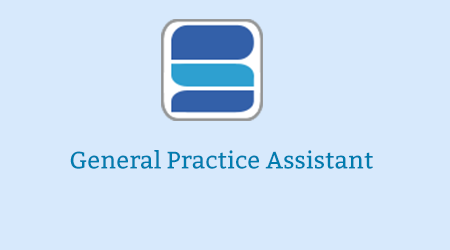About the General Practice Assistant Role
General Practice Assistants (GPAs) form part of a multi-disciplinary team within primary care, and provide a support role, carrying out administrative tasks, combined in some areas with basic clinical duties, helping to free up GPs time and contribute to the smooth running of appointments, improving patients experience in the surgery.
Following a successful pilot of the GPA role in the North West, Health Education England established a national programme in 2019 to support the spread and adoption of the role across the country, providing provide a consistent approach to developing the role, underpinned by a defined job description and competency framework to support work-based learning.
By 2023, over 500 GPAs had successfully completed the accredited learning programme and the GPA role was included in the NHSE Additional Roles Reimbursement scheme.
Evidence and feedback from GP practices has suggested that effective adoption of this role can support in:
- Improving patient access and releasing highly qualified staff to concentrate on treating and managing patients with more complex conditions
- Improving patient flow within surgery hours, increasing the time efficiency of appointments, and reduction of waiting times; supporting patient experience by ‘translating’ or reiterating information from the GP
- Having a positive impact on retention and job satisfaction
- Reducing time spent by GPs in managing correspondence
Further, more detailed information and resources can be found below.
General Practice Assistant Resources
-
Overview
Overview
Overview
An overview of the GPA role, training and development routes and associated providers.
-
Case studies
Case studies
General Practice Assistants: Evidence and benefits
This document provides overall impact and outcomes collated from the first national cohort of General Practice Assistants, illustrating how it has helped to improve patient and staff experience, population health and release time to care.
General Practice Assistant video case study
This video clip shows a GP practice in the North West highlighting challenges posed to their practice and how they developed a Medical Assistant role, transforming the way they work and practice. The development journey of the role is outlined from the Medical Assistant and GP partners.
General Practice Assistant case study
A written case study conducted with Gresleydale Medical Centre in 2019 focussing on how they introduced two GPA’s into their Practice. It highlights the initial challenges faced by the GP practice prior to recruiting GPAs, and the key outcomes, achievements, challenges and lessons learned, post recruitment.
General Practice Assistant case study
A written case study conducted with the GPA and GP mentor at Swan Medical Practice in 2022, illustrating the role flexibility and how it is developing in practice.
North West Case Study – Mentors
Case study giving detailed information collected from a group of mentors involved in the North West pilot.
-
Job description
Job description
General Practice Assistant job description
A generic job description covering duties and responsibilities of a GPA (updated Nov 23).
-
Evaluation
Evaluation
North West – GPA Cohort 1 – Leader Framework Evaluation report
This report presents and evaluation of the development of GP/Medical Assistant training programme in line with hybrid clinical and non-clinical model, delivered through the North West Training Hub structure.
-
Competency Framework
Competency Framework
Core competencies and functions
A framework specifying a range of core competencies expected of the General Practice Assistant (GPA) working within general practice/primary care.
Further information: Phlebotomy
Within the competency framework there is a section dedicated to understanding, preparing, obtaining and transporting venous blood samples (see Clinical domain). The following guidance will support GP practices in ensuring the correct practice is undertaken and the right evidence is produced by the GPA.
-
Frequently asked questions
Frequently asked questions
Questions answered relating to GPA role, training and the Additional Roles Reimbursement (ARRS) scheme.
-
Training Programme
Training Programme
Accredited Training Programme Overview
An overview of the current GPA accredited training programme and associated regional providers.
GPA learner guide
An example guide for learners including structure and components of the accredited training programme and how to build the evidence for portfolios.
Mentor guide
An example guide for mentors to support them in providing educational and pastoral advice, direct learning and feedback to GPA learners undertaking the accredited training programme.
Building a portfolio of evidence
A simple guide to support GPAs in building a portfolio of evidence.
Supporting resources aligned to competency framework
This document provides GPAs and mentors with detailed information including links to key resources, suggested reading and questions within each domain of the competency framework.
Frequently Asked Questions
Questions answered relating to GPA role, training and the Additional Roles Reimbursement (ARRS) scheme.
-
Information for patients
Information for patients
Patient information leaflet
A leaflet for patients and service users which can be used by practices to explain the GPA role.



